The Minister of Petroleum and Natural Gas & Steel Dharmendra Pradhan today released the Expression for Interest (EOI) by National Oil Marketing Companies (IOC, HPCL and BPCL) for procurement of biodiesel, made from Used Cooking Oil (UCO). On the Occasion of the World Biofuel Day today, Pradhan, along with the Chief Guest, Minister of Health & Family Welfare, Science & Technology and Earth Sciences Dr Harsh Vardhan, launched a sticker on RUCO viz., Repurpose Used Cooking Oil and a mobile app to facilitate the collection of UCO. This year the theme of the World Biofuel Day is “Production of Biodiesel from Used Cooking Oil (UCO)”.
As reported earlier by Time Green earlier, the EoI was to be released on World Biofuel Day. (See: EoIs for biofuel coming on World Biofuel Day)
The EOI on biodiesel from UCO provides that the entrepreneurs setting up biodiesel plants get remunerative price and assurance of complete offtake of production by the Oil companies. To be launched in 100 cities, EOI will ensure that Rs 51 per liter is paid for biodiesel for the first year, Rs 52.7 for the second year and Rs 54.5 for the third year. The oil companies will also bear the cost of transportation and GST for the first year, said the PIB release for this news today.

Dharmendra Pradhan, along with Chief Guest Dr. Harsh Vardhan, launched a sticker on Repurpose Used Cooking Oil (RUCO) and a mobile app to facilitate the collection of UCO. (pix source: PIB)

Describing biodiesel as low hanging fruit in the scheme of alternate source of energies, the minister said that abundant raw material is available for the purpose (pix source: PIB)
Speaking on the occasion, Pradhan said the Prime Minister has given a target to the Ministry of Petroleum and Natural Gas to bring down import dependency of oil products by 2022, and this can be achieved by enhancing production, improving energy efficiency, promoting conservation and encouraging alternate fuels. He said that the government is promoting the alternate sources of energy in a big way. Ministry of Petroleum and Natural Gas is working on a four-pronged strategy in this regard—promoting Ethanol, 2-G ethanol, compressed biogas and biodiesel. Pradhan said that the ethanol blending in petrol has gone up from 1% to about 8% and is likely to touch 10% soon. He said the Government is planning to allow production of ethanol from surplus food grains which now sometimes go waste and also entail expenditure on storage. On the issue of compressed biogas, the minister said that CGD network being set up in over 400 districts will give a big fillip to it, and already 300 letters of intent have been signed with entrepreneurs for setting up CBG plants. Describing biodiesel as low hanging fruit in the scheme of alternate source of energies, the minister said that abundant raw material is available for the purpose. It is a good waste to wealth concept. He said that the budget this year has underlined the transformation of Annadata to Urjadata.
Mentioning about the Pradhan Mantri Ujjawala Scheme, Pradhan said that the Scheme will achieve its target of 8 crore beneficiaries by October this year, well before the deadline. He said that the scheme has environmental, economic, social and health benefits. Similarly, the scheme of collecting the Used Cooking Oil and its conversion to biodiesel will have environmental, economic and health benefits, besides helping the country attain self-sufficiency. He called upon the OMCs to support the entrepreneurs in their endeavor, as the biodiesel production also promote Sswacchh Bharat mission.
The minister complimented the Ministry of Health in joining hands with the ministry of petroleum and natural gas, in taking up the projects concerning the health of the people.
Dr. Harsh Vardhan enumerated number of technologies developed within the country to convert the waste into useful products. He said that PMUY has helped millions of people in improving their health. The Health Minister emphasized on enforcement, educating and raising awareness about perils of repeatedly using cooking oil, besides offering incentives for disposing it in productive, useful and safe manner. There is need to develop societal movement around it, he added. He said that the Government has launched Eat Right India campaign, and there is need to extend it Eat Less also.
The RUCO sticker launched today will imply that the establishment having it conforms to the RUCO ecosystem and does not reuse the cooking oil. The RUCO App will enable stakeholders to track and trace all transactions.


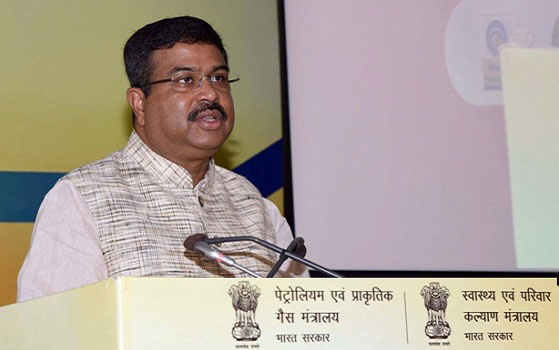
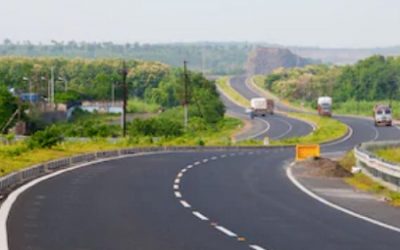

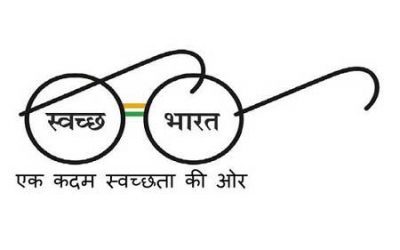

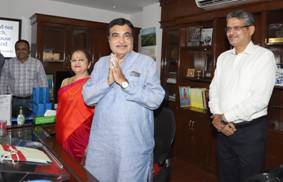


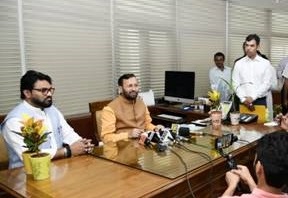



0 Comments